Adelaide University Internships - Natasha Kwan
Image: Number of community services listed on SAcommunity, indexed and operating in Charles Sturt Council
Natasha is camera conscious however she has captured many of the internship activities she has been involved in with photos of the team events and activities for her online portfolio.
Total Hours 253 Joined 26 July 2023 Final check-in 9 November 2023 (retired)
Joining SAcommunity for her internship, will allow her to gain real-world data analytics experiences and insight into the potential of data to improve people’s lives. Her motivation for being in the program stems from a passion for identifying patterns within data and utilizing this skill to address challenges across diverse industries, taking complex data and simplifying it into user-friendly dashboards and presentations to make this information easier to comprehend. Natasha thrives on working in collaborative team environments and independently ‘getting things done’, she is committed to continuous learning and the ongoing expansion of her skillset all of which were available in this opportunity. Moreover, she finds great satisfaction in actively listening to peoples’ needs, and collaborating with clients and experts to tackle complex problems.
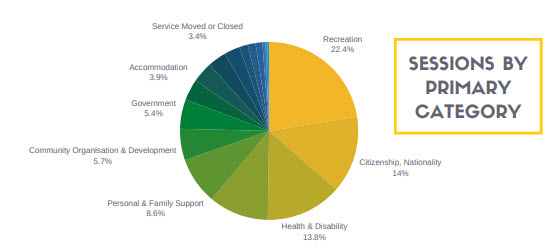
Natasha also created the following article [Mo]re than a run assisted by Volunteer Flavia in the Media & Communication Team to promote this fundraising event from Movember towards an awareness and support for men's health.
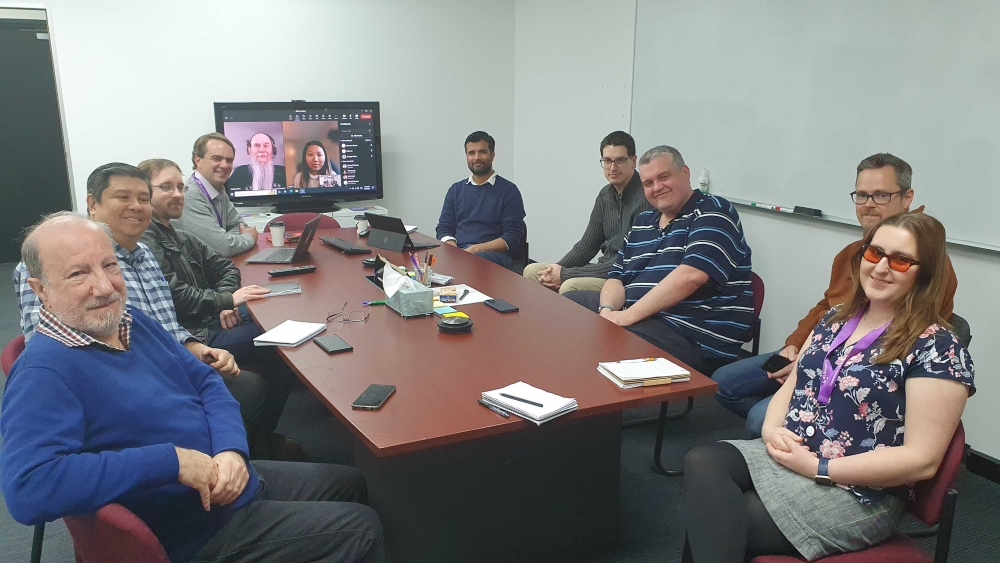
Image: David Spriggs, Infoxchange CEO visits from Melbourne for a Staff Meeting 5 September 2023 at Connecting Up attended by Intern Natasha Kwan.
Pictured: Stathis Avramis Volunteer Data Analytics Team Lead, Mike Makalintal Customer Support Officer, Eric Jenkins Account Manager, David Spriggs Infoxchange CEO, Koodge Parker ITS Helpdesk Officer, Chloe Le Marketing Coordinator, Pankaj Chhalotre Head of Connecting Up, Cameron Brown Web Developer, James Newport Senior Web Developer, Sam Lloyd Marketing Lead and Samantha Whillas Customer Support Officer
Work Experience - Internal Organisation Connections
Volunteers and interns are encouraged to attend monthly team and organisation-wide meetings to understand more about the whole organisation. Natasha had the opportunity to attend SAcommunity and Connecting Up team meetings to learn more about the team directions and how her project aligns with Connecting Up and Infoxchange values, activities, mission and vision. Including the monthly Connecting Up staff meeting on the 5 September 2023 (pictured) and opportunities on the 10 October 2023, 14 November 2023 as well as the All-staff IX Quarterly Town Hall meeting held on the 2 November 2023.
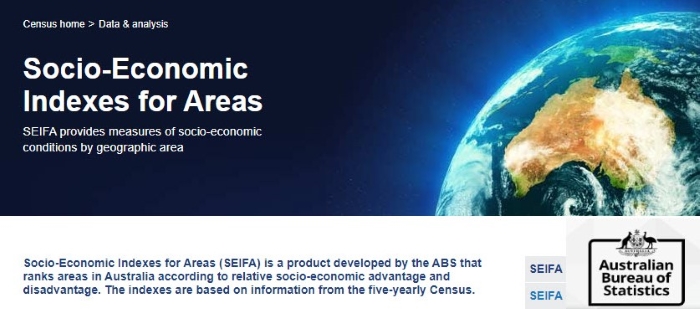
Australian Bureau of Statistics Website: Socio-Economic Index for Areas (SEIFA)
Work Experience - Wider Organisation Connections & Networks
On Friday 6 October 2023 Marcus Harvey and Kristen Moeller-Saxone visited the Connecting Up Office for a meeting held in Adelaide as part of the Data Catalyst Network. They had an opportunity to talk to Natasha and our other intern students Kane Hengchuan Zhao and volunteers Neil Anubhav Dattagupta and Rex Porter afterwards regarding a data request for community services operating in a target suburb of Adelaide of disadvantage indicated by the Socio-economic Indexes for Areas (SEIFA) from the Australian Bureau of Statistics (ABS).
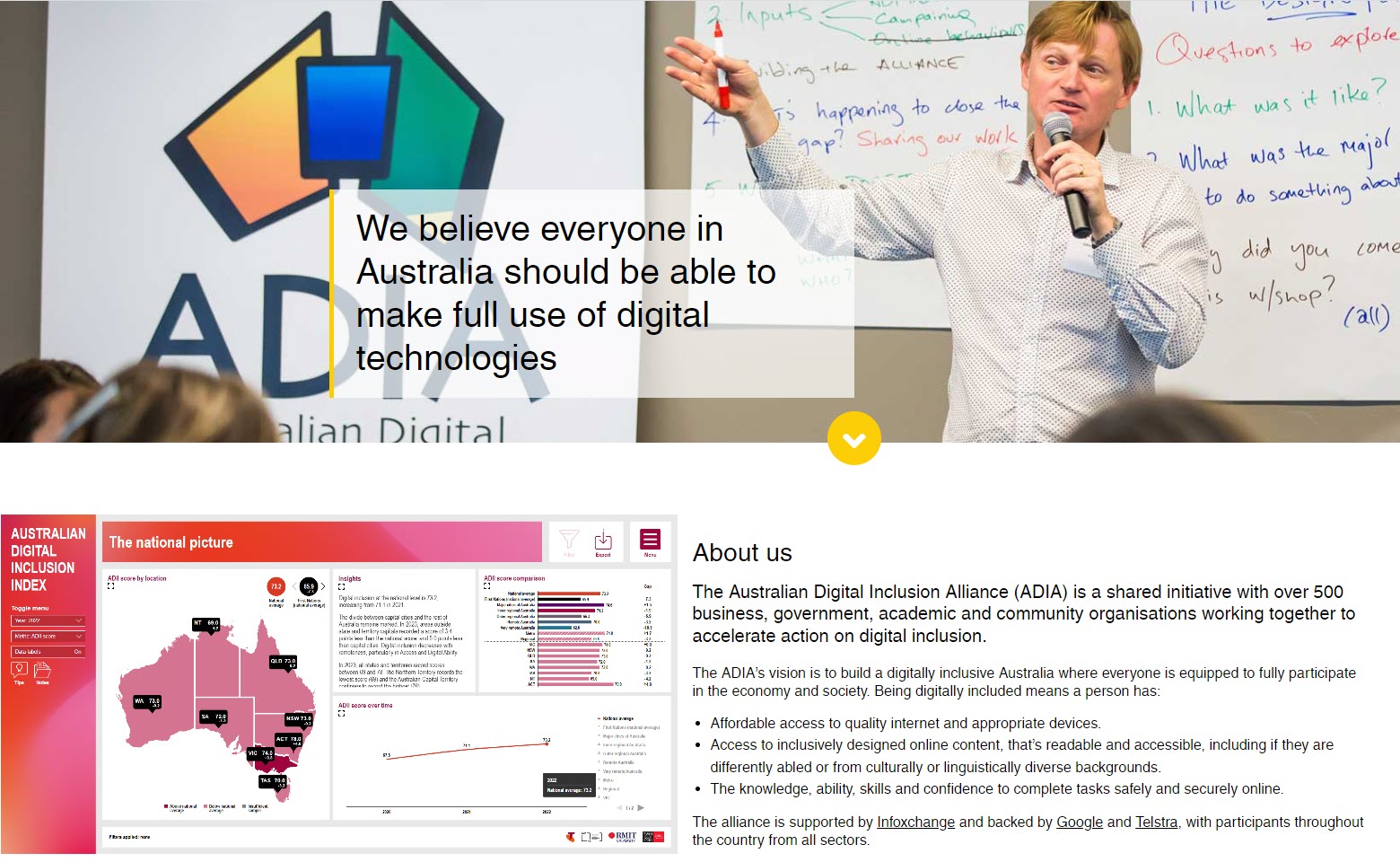
Image: ADIA website with inset ADII interactive data dashboard, The National Picture
Thomas, J., McCosker, A., Parkinson, S., Hegarty, K., Featherstone, D., Kennedy, J., Holcombe-James, I., Ormond-Parker, L., & Ganley, L. (2023). Measuring Australia’s Digital Divide: Australian Digital Inclusion Index: 2023. Melbourne: ARC Centre of Excellence for Automated Decision-Making and Society, RMIT University, Swinburne University of Technology, and Telstra.
Work Experience - External Partners and Stakeholder Networks
Volunteers and Interns are also provided with opportunities to attend larger Australia-wide organisation meetings and key partnership events including Digital Capability in Australia: Unpacking digital preparedness for access to work, learning and life held on the 20 September 2023.
The event was hosted by The Australian Digital Inclusion Alliance (ADIA), a shared initiative with over 500 business, government, academic and community organisations working together to accelerate action on digital inclusion and The Future Skills Organisation (FSO) is a Jobs and Skills Council funded by the Australian Government Department of Employment and Workplace Relations. Moderated by Infoxchange CEO and ADIA Chair, David Spriggs, this was an in-depth discussion on the challenges and opportunities of digital capability in Australia, and to hear more about the ADIA/FSO approach to addressing this issue with discussion and Q&A.
Natasha attended this meeting along with fellow interns Grace Hong Hong and Kane Hengchuan Zhao to understand more about some of the issues that are important to the broader organisation and the partnerships we support and work with. Former interns attended the launch of the Australian Digital Inclusion Index (ADII) which measures the extent of digital inclusion in Australia, a tool that will help inform and promote public policy and program responses to enhance digital inclusion in Australia.

Image: Telephone Techniques - Volunteer Frank Xiufeng Shi practicing with Interns Grace Hong Hong and Natasha Kwan after a workshop from Volunteer David Webb
Training - Telephone Techniques
Professional calls are very different from personal calls, and volunteers and interns undertake a telephone techniques workshop and practice sessions with a given template. Telephone techniques are important in maintaining connections with clients and stakeholders in any work position, and are taught for all roles in SAcommunity. For the Data Analytics Team, the training is undertaken ahead of contacting community services to update any anomalous records in their dataset, which then provides plenty of practice before contacting staff in their councils to introduce the service and present their final data visualisation reports for the area.
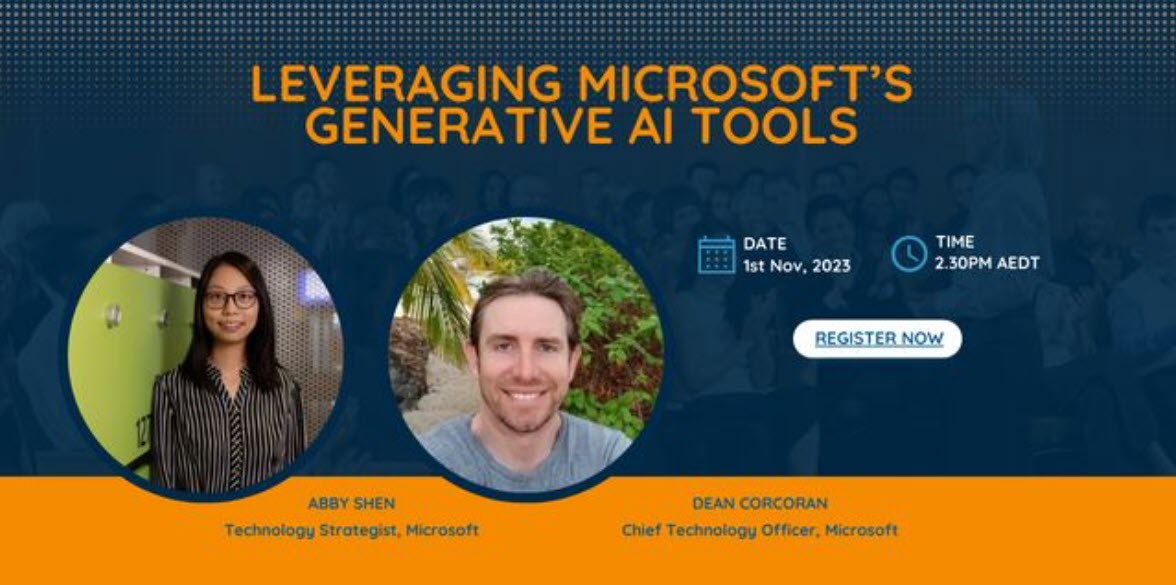
Training - Connecting Up Webinars, Workshops and Webcons
Volunteers and interns are also provided with access to the Connecting Up Digital Learning platform, a training and development online learning platform. This learning resource hub provides Natasha with the opportunity to understand more about data analytics in the not-for-profit sector, through training sessions presented by subject-matter experts in a selection of relevant live webinars, and recorded webinars, workshops and webcons.
Professional Development at Infoxchange is a balance of approximately 70% project / 10% formal learning / 20% peer-to-peer learning so for the team this means approximately 15 hours of project work, 3 hours of peer-to-peer learning, and 1 hour of online webinar and 30 minutes of feedback, to reflect and strengthen team members understanding of what was learnt and what their personal takeaway was from these educational sessions.
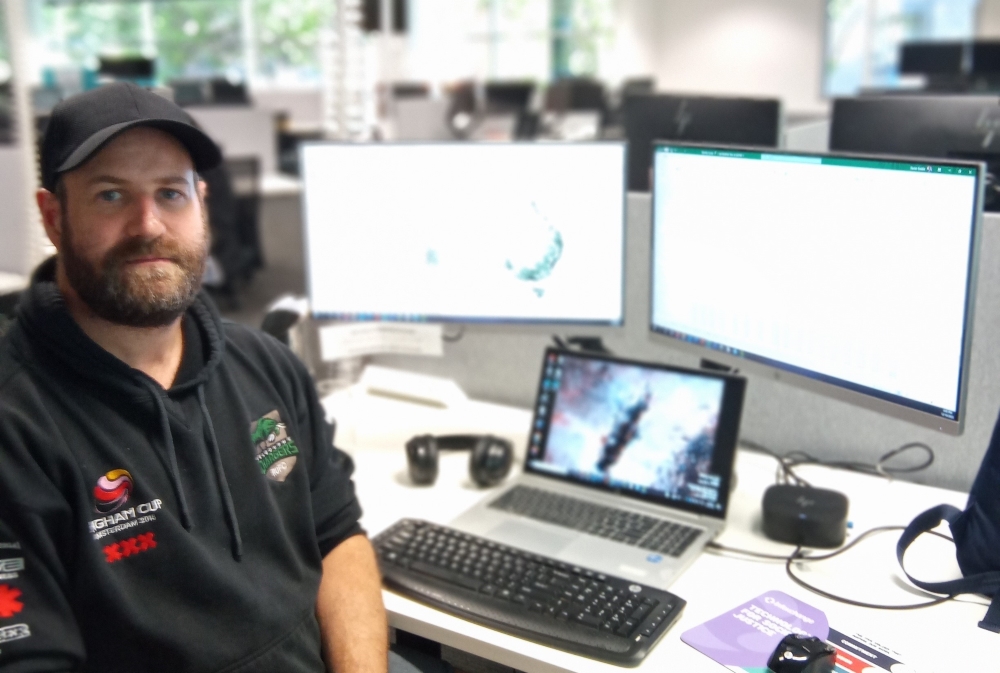
Image: Xavier Goldie, Senior Data Analyst Infoxchange
Mentor Meeting
Volunteers and interns have the opoprtunity to undertake the SAcommunity mentor program, selecting and introducing themselves to a staff member working in an area of relevance to them. The program develops volunteers' understanding of the broader staff teams in Connecting Up and Infoxchange, allows them to explore potential career pathways and goals, and builds their network of professional relationships.
It was a great experience talking with Xavier. His insights as a senior data analyst are truly admirable, I especially found his work mindset, combination of skills and attitude, and ability to articulate his ideas precise and concisely incredibly valuable. He shared a saying with me that he had picked up along the way, which really resonated - "All models are wrong, but some are useful. All data models are inherently incorrect because they don't fully encompass the complexity of how the world works. So fix what you can, document what you can't, accept data has limitations."
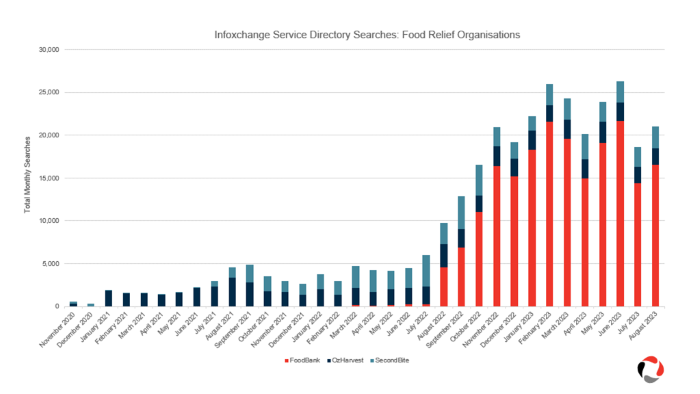
5 Takeaways from the mentor meeting with Xavier
1.Role of Data Analysts: Data analysts play a multifaceted role in organizations, collaborating with different teams and external stakeholders. Apart from performing analysis, it's very crucial to lead cultural shifts patiently within an organization around data value, sovereignty, ethics and governance. Instead of "data-driven decision making", it should be "data-informed decision making", recognizing that data is just one factor in decision-making. So, the best we can do is communicate with confidence in data, advocate our position, be transparent and honest in its fall shorts, as all data has limitations.
2. Career Transitions: Transitioning between sectors, such as private, academic, and nonprofit, can offer varied experiences in terms of pacing, resources, and culture. It makes more sense to adopt the idea of 'go where the work is interesting', since skills as a data analyst are transferable and flexible, and you'll end up picking up a range of peripheral skills that are useful. Do not worry about not having any formal training as a data scientist, as there are plenty of open source for self-learning, and it is actually quite a good thing to allow you to be a flexible thinker.
3. Balancing Skills: Success as a data analyst requires a balance of technical, analytical, business, and particularly, communication skills, which is sometimes lacking but critical as being able to deliver what a pattern means is as crucial as identifying them.
4. Data Quality and Fundamentals: Before investing into ideas of AI and machine learning, it's essential to understanding the fundamental meaning of data, reasonings behind numbers and patterns, how the data are gathered, what are the methods, and fall shorts. It's important to note that the technology might not suit every purpose, especially if the data quality and capacity is low, some organizations will struggle to manage even basic data like spreadsheets. Fortunately most of the time, classical statistical analysis will be enough to provide most of the valuable insights.
5. Three Key Skills for Data Analysts: First, learn to code in at least one language, particularly Python, R and SQL. Next, learn GIS and statistics for proper statistical analysis. Lastly, learn to effectively communicate complex scientific concepts and topics in a way that people understand. Apart from developing your workskills from your workplace, demonstrate your abilities by building a portfolio with personal projects, such as websites and blog posts featuring custom dashboards, as these can showcase your capabilities. It's not just about knowing how to do it, but knowing how to communicate it.
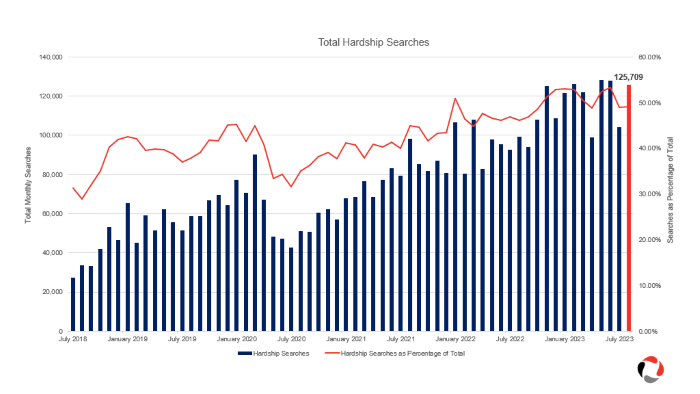
Sign up for the newsletter!
Subscribe to our monthly newsletter to receive news, information and events for the community sector in SA.




